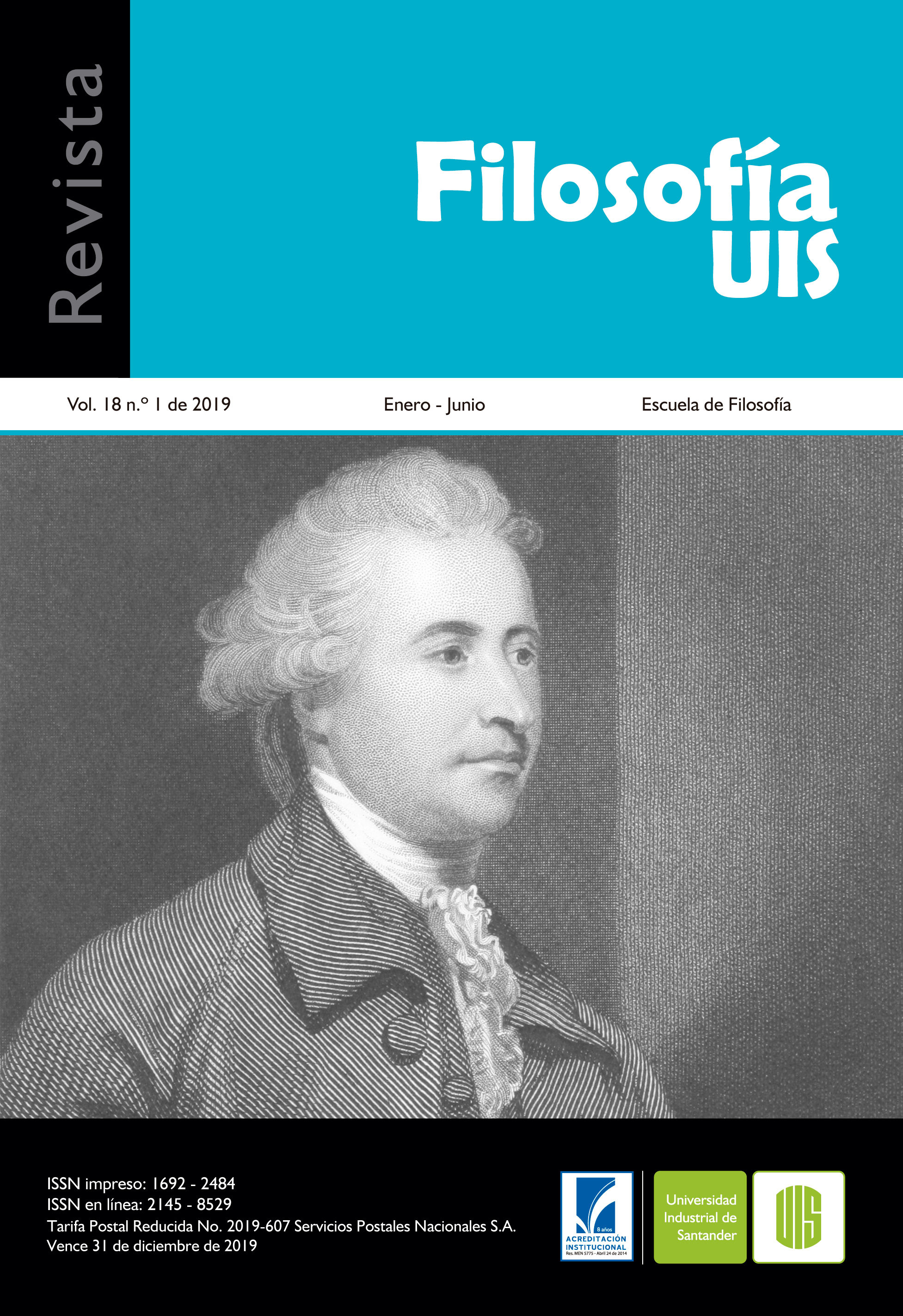Editorial. Thinking over Goethe
Published 2019-01-31
Keywords
- Goethe,
- rejection,
- conservatism,
- aesthetical,
- innovation
- ecology,
- action ...More
How to Cite
Copyright (c) 2019 Revista Filosofía UIS

This work is licensed under a Creative Commons Attribution 4.0 International License.
Abstract
Should we keep reading Goethe? The traditional mainstream in German Studies prescribes it. Nevertheless, such imposition provokes antipathy. This, together with his political conservatism, his resistance to aesthetic novelties and his crazy vision of science, create a very negative image of the writer. But, these motives of animosity must be nuanced. Its conservatism is understandable in biographical keys (he was a son of the bourgeoisie among aristocrats). He did not pretend to be aesthetically innovative, but many of his works overcame the conventional limits of literary genres. Moreover, his conception of science can be understood as an ecological critic to the dominant paradigm of his time.
Downloads
References
Benjamin, W. (1996). Goethe. Artículo enciclopédico. Dos ensayos sobre Goethe (pp. 137-190). Barcelona: Gedisa.
Bloom, H. (2002). El canon occidental. Barcelona: Anagrama.
Hernández, I. y Maldonado, M. (2003). Literatura alemana. Épocas y movimientos desde los orígenes a nuestros días. Madrid: Alianza.
Herwig, H. (1997). Wilhelm Meisters Wanderjahre. Geschlechterdifferenz. Sozialer Wandel. Historische Anthropologie. Tübingen-Basel: Francke.
Krippendorff, E. (1998). Wie die Großen mit den Menschen spielen. Versuch über Goethes Politik. Frankfurt am Main: Suhrkamp.
Martini, F. (1964). Historia de la literatura alemana. Barcelona: Labor.
Ortega y Gasset, J. (1983). Pidiendo un Goethe desde dentro. Goethe-Dilthey. Madrid:Revista de occidente-Alianza Editorial.
Pfotenhauer, H. (1987). Literarische Anthropologie. Selbstbiographien und ihre Geschichte- am Leifaden des Leibes. Stuttgart: Metzler.
Schlechta, K. (1985). Goethes Wilhelm Meister. Frankfurt am Maim: Suhrkamp.

